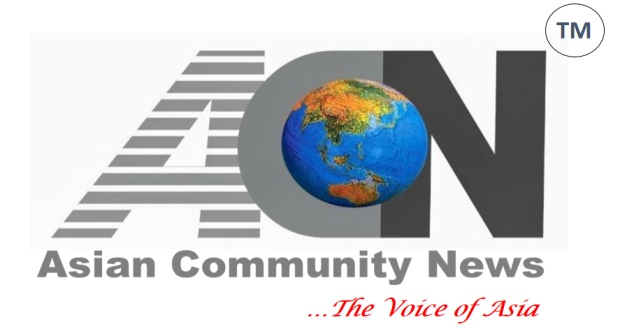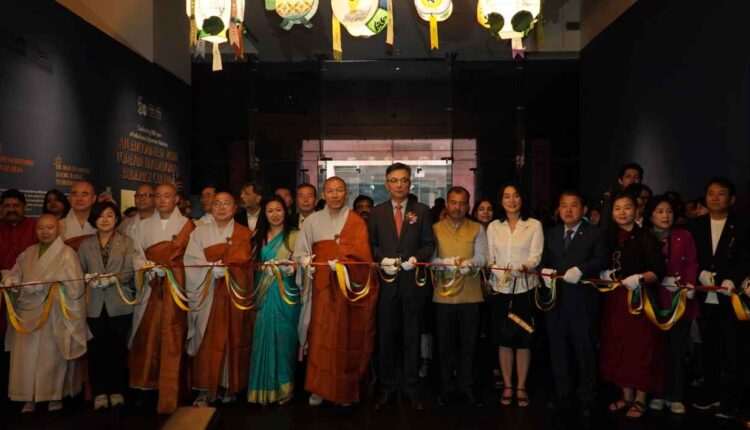An Encounter with Korean Traditional Buddhist Culture in India, the Land of Buddha: Yeondeunghoe Exhibition reaches India
On the display are the media art of Buddhist painting scrolls called ‘Gwae Bul’, a symbol of traditional Korean Buddhist rituals, and Korean traditional lanterns of 'Yeondeunghoe', a UNESCO Intangible Cultural Heritage of Humanity, etc.
NEW DELHI: The Embassy of the Republic of Korea and Korean Cultural Centre India, together with the Jogye Order of Korean Buddhism, organized a cultural exchange event in commemoration of the 50th anniversary of diplomatic ties between Korea and India. The special exhibition titled “An Encounter with Korean Traditional Buddhist Culture in India, the Land of Buddha” was held at the National Gallery of Modern Art (NGMA) was opened to the public on March 22, and it will remain open till 30th April.
At the exhibition, one can see the media art of Buddhist painting scrolls called ‘Gwae Bul’, a symbol of traditional Korean Buddhist rituals, Korean traditional lanterns of ‘Yeondeunghoe’, a UNESCO Intangible Cultural Heritage of Humanity and various photo works with the theme of temple stay.
Korea’s traditional Buddhist culture, which has received international attention, will be introduced to India through this exhibition. The exhibition will have various experience programs such as painting Korean cultural items, experiencing Korean Buddhist scriptures inking, and making lotus lanterns will be held at the exhibition hall from 22nd March to 25th March.
Korean Ambassador to India Chang Jae Bok said, “In commemoration of the 50th anniversary of diplomatic ties between Korea and India, the Buddhism and Buddhist cultural exchange program, which can be the foundation of the special strategic partnership between Korea and India, has a special meaning. Since Buddhism and Buddhist culture were introduced to Korea in the 4th century, they have been an indispensable core part when talking about the Korean way of life, way of thinking, and traditional Korean culture. Korea and India, the origins of Buddhism, are also closely connected through Buddhism.”

Ven. Jinwoo President Jogye Order of Korean Buddhism in his message said ‘Upon the greeting year 2023, the 50th anniversary of official diplomatic relations between South Korea and India, I am deeply delighted to attend these cultural exchange events to celebrate the two countries’ connections. We have prepared content so viewers can more vividly sense Korean Buddhism’s 1,700-year history, steeped in compassion and peace based on the Buddha’s teachings that were introduced from India.’ I hope this cultural exchange exhibition provides you with the opportunity to immerse yourselves in the charm and essence of Korean Buddhism. I further pray for the great advancement of friendship between our two countries from these events.
Kumar Tuhin, Director General, ICCR said, The exhibition highlights the Buddhist connection between India and Korea and the importance and significance to people-to-people contact between the two nations. He also congratulated for successfully completing the pilgrimage in Bodh Gaya which was an extraordinary cooperation between India – Korea Buddhist ties and friendship.
In addition, the Korean temple food demonstration and experience event by Venerable Jeong Kwan, a master of Korean temple food will be held at Korean Cultural Centre India on 25th March (Saturday) at 11 am for renowned Indian chefs & Media at 3 pm. In accordance with the teachings of Buddha who respected life, Korean temple food has preserved vegetarian food traditionally and it has formed one of the roots of Korean traditional food. It will be the first time this Korean temple food is introduced to the Indian public.



